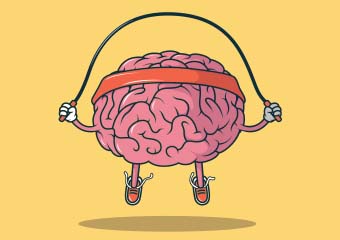We put a lot of work into our series. There’s a lot of research, preparation, writing and editing, filming – you name it. But as the New Brain Science series winds to a close, and we pause to catch our breaths, I want to take a moment to appreciate one important thing that we can’t […]
Brain health and interoception: Getting in touch
“Listen to your heart.” That might sound overly romantic, but it could also be one way to improve your mental health. . . . . . at least, according to a study by researchers at the University of London. Led by Manos Tsakiris, PhD, researchers set out to see how paying attention to the rhythms […]
Neuroplasticity and trauma: Can brain science give us a new perspective on healing?
We owe the brain a lot. The brain is always looking out for us. It’s wired to help us survive – alerting us to threats and ramping up our amygdala to help us take action. But that same survival trigger makes healing from trauma difficult, says Pat Ogden, PhD. In fact, the very systems that […]
Brain health: You don’t need to be a neuroscientist to make it possible
You don’t need to be a neuroscientist to make brain change possible. When we set out to put together the New Brain Science series, that was our “big idea.” We wanted to prove that anyone can unlock the brain’s potential to change. And it’s because of my friends Joan Borysenko, PhD and Ron Siegel, PsyD […]
A healthy brain with green tea? The brain science of natural medicine
It’s always a treat to relax with a cup of green tea. And we’ve known about its health benefits for a while. But here’s a new one: there’s a chemical found within green tea that might prevent Alzheimer’s disease. A team of researchers led by Jo Rushworth, PhD, looked at the effects of chemicals found […]
Rewiring the brain after stroke
How far does neuroplasticity go? We’ve talked before about improving the brain’s abilities over time. On this blog, we’ve looked at how neuroplasticity allows for boosts in memory, thinking skills, and emotional regulation. But what about recovery after a major trauma – like stroke? Researchers at Johns Hopkins University, led by Steven Zeiler, MD, PhD, […]
How the Brain Works with the Vagus: Empathy and More
When someone’s frowning, or beaming, or gaping in surprise, they’re wearing their heart on their face. That’s because the muscles that control facial expression are linked to the smart vagus, says Stephen Porges, PhD. Thanks to the vagus nerve, the emotions we feel are displayed on our faces and in the sound of our voices. […]
The brain science of fear: Scaring the "fearless"?
Ever known someone who was totally fearless? Justin Feinstein, a clinical neuropsychologist at the University of Iowa, studied a woman who never felt fear. This woman had Urbach-Wiethe disease, a condition that causes the amygdala to calcify – it hardens and shrivels up. Now, we know that the amygdala is responsible for processing stimuli related […]
Rewiring the brain for health – with computers?
You’ve probably heard of the benefits of “brain training” as we age. Whether it’s simple puzzles like crossword or sudoku, or a more involved intellectual hobby, lots of people want to do whatever we can. But brain training isn’t just a folk theory, and a group of researchers from Aix-Marseille University in France wanted to […]
Neuroplasticity: Powerful possibilities . . . with a dark side
We often see neuroplasticity as one of our brain’s greatest assets. The neuroplastic potential to restore function after trauma, resist the deterioration that comes with aging, and bolster core capabilities borders on miraculous. But there’s another side to neuroplasticity . . . In fact, many of the things that bother us about ourselves – our […]









